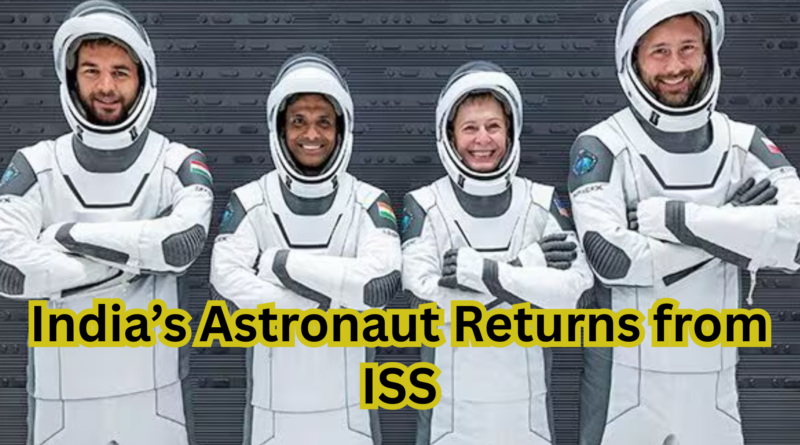India’s Astronaut Returns from ISS: A Proud Moment in Space History
Group Captain Shubhanshu Shukla, India’s representative aboard the Axiom-4 mission, is set to return to Earth today after completing a successful stint on the International Space Station (ISS). This marks a significant milestone for India’s space program as it continues to establish its presence in the global space community. Shukla’s mission has not only boosted national pride but has also paved the way for future collaborations between ISRO, NASA, and private space companies like Axiom Space.
The Axiom-4 mission, launched in partnership with NASA and SpaceX, was a privately funded spaceflight carrying a diverse international crew. During his time on the ISS, Group Captain Shukla engaged in a range of activities including microgravity research, biomedical experiments, and educational outreach programs. His contributions helped expand scientific knowledge across fields such as material sciences, remote healthcare, and climate observation.
Shukla, a decorated Indian Air Force officer, was selected for this mission after undergoing rigorous training in Houston and Moscow. His performance in simulated space conditions and leadership qualities made him the ideal candidate for India’s first private-sector-backed human spaceflight. His journey represents India’s growing collaboration with commercial space enterprises and a crucial step towards the country’s ambitions in manned space missions like Gaganyaan.
The return journey will involve re-entry in a SpaceX Dragon capsule, expected to splash down in the Atlantic Ocean under parachutes. The recovery team is on standby to extract the crew safely and perform post-flight medical checks. This marks the end of a mission that lasted 14 days, providing invaluable experience in handling extended space habitation and deep-space communication.
ISRO has celebrated this moment with a live stream and special event at its headquarters in Bengaluru. Prime Minister Narendra Modi congratulated Group Captain Shukla, stating that his return “symbolizes the dreams of 1.4 billion Indians reaching for the stars.” The mission has sparked interest among Indian youth, with educational institutions reporting a spike in STEM-related inquiries and space science clubs.
Looking forward, India is expected to leverage this momentum to accelerate projects like Gaganyaan, space tourism initiatives, and lunar missions. With the successful participation of an Indian astronaut in a global commercial mission, India has demonstrated not only its technological capabilities but also its readiness to be a key player in the next era of human space exploration.




